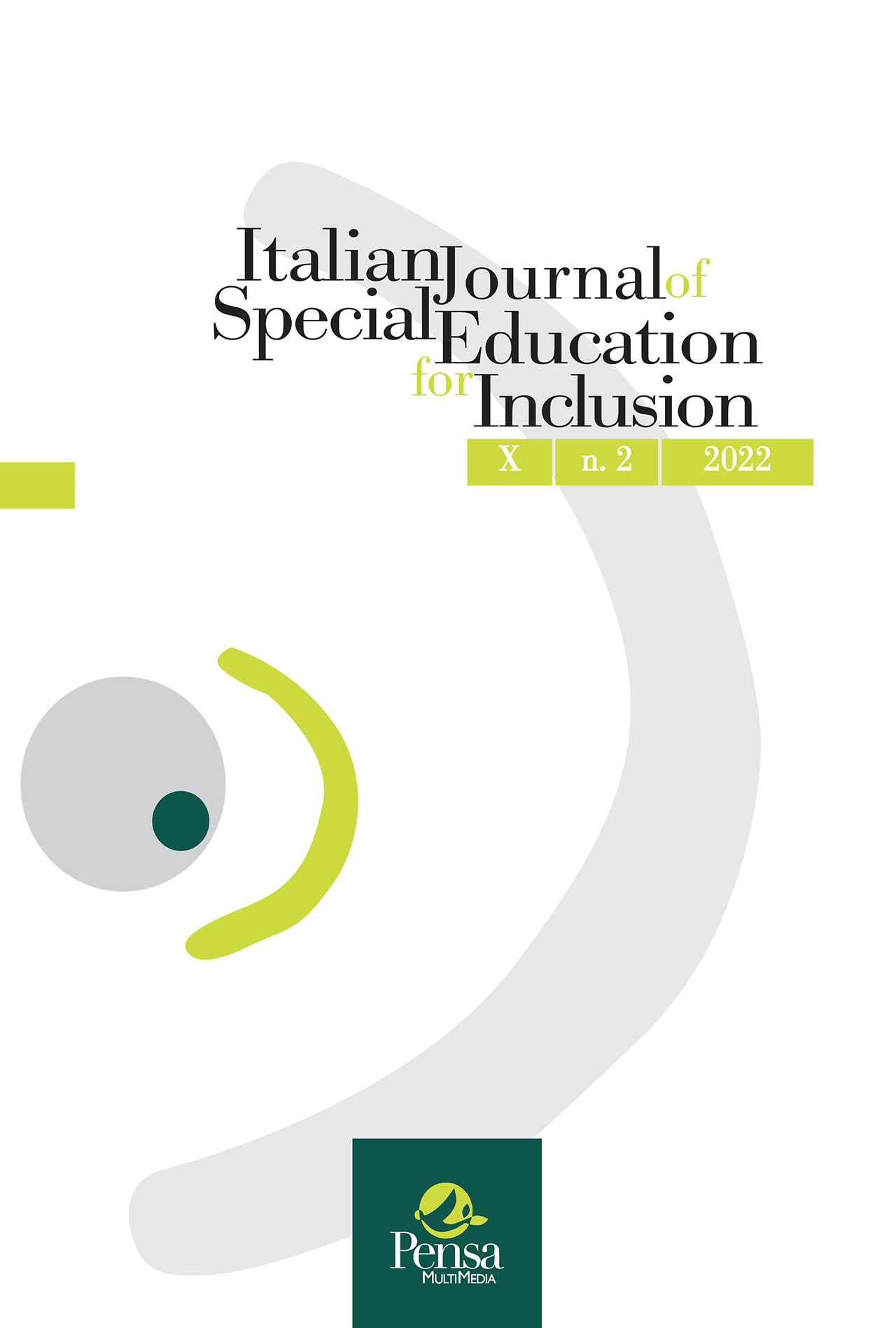Educational Avant-gardes (Indire): jazz and inclusive?
DOI:
https://doi.org/10.7346/sipes-02-2022-16Abstract
This work starts from the desire to propose an inclusive theoretical-critical reflection on the innovative-didactic models proposed by Indire in the “Gallery of Ideas” which collects the proposals of the National Educational Avant-gardes (EA). The main objectives are two: (1) to propose a reading of the founding principles of the EA Manifesto under the light of an original and recent framework of pedagogical meaning - the pedagojazz (Santi, 2016); coherences and possible shades of dissonance will be found. (2) To propose a reading of the EA models in the light of the principles of Universal Design for Learning (UDL) which at the international level proves to be an inclusive teaching proposal (CAST, 2011; Rose & Meyer, 2002), in line with the UN Convention (2006) on the rights of persons with disabilities. Questions that prompted this reflection, therefore, turn out to be: how “jazz” are the principles of the EA Manifesto? And how accessible and inclusive are - right from their design - the EA's proposals? And finally, is it possible to look inside the need for "innovation" in education (which is the engine of reflection and research on the avant-gardes), to rediscover and reposition the value of the unrepeatable, both human and educational, which is at the center of the inclusive perspective?


